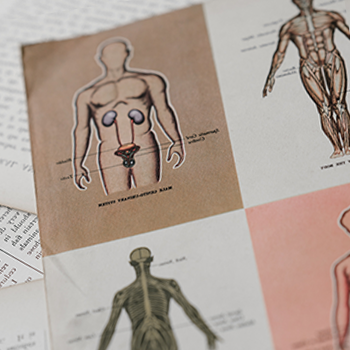Many students feel that they need to be a genius to get a great score on the Medical College Admission Test (MCAT). The truth is, with dedicated preparation and training, you will be able to perform your best on the exam.
MCAT sample questions and practice tests are great starting materials for anyone who wants to succeed on the MCAT and get into medical school. They're designed to prepare you for the actual test and make you feel confident in your abilities when the test day arrives.
Furthermore, sample questions help you familiarize yourself with the exam format and pacing, helping to improve your overall score. The best way to prepare for the exam is to practice questions similar to those given on the exam.
Why Test Practicing for MCAT Works ?
- All the questions on the MCAT are multiple-choice and there’s no penalty for wrong answers.
- The test consists of 7 subjects, which are presented in 4 sections.
- You should do MCAT test practice to get familiar with how AAMC words the questions.
- The more sample questions you go through, the higher your chances of a good score.
MCAT: an Overview

First things first, the MCAT is a long examination. Future medical students can expect to answer scored questions for six hours and fifteen minutes on test day. If you add in scheduled breaks, you should expect to be at your testing center for almost seven and a half hours for this single-day test.
Now that we have that behind us, there are some good things about this exam. For example, all the MCAT questions are single answer, multiple-choice type questions. Regardless of how many answer choices are available, only one will be the best answer.
“You can't get through medical school if you don't have a strong will and a strong constitution.” - Ken Jeong, physician and actor
Better yet, there is no penalty for guessing. If you don’t know what’s the correct answer, eliminate the answers you know are wrong, and then go ahead and give it your best shot. You can make your score better by guessing than you would by leaving the answer blank.
The test is entirely computer-based. There is no verbal reasoning section or oral MCAT question.
Test Questions: an Overview

The way the Association of American Medical Colleges (AAMC) describes the MCAT exam content is not particularly straightforward. They have ten 'foundational concepts' and seven 'scientific inquiry and reasoning skills', and they evaluate test-takers based on these factors.
These concepts and skills are then interlaced with a student's knowledge in several subjects.
These are areas where they expect you to have taken relevant courses, including [1]:
- Biochemistry
- Biology
- General chemistry
- Organic chemistry
- Physics
- Psychology
- Sociology
Despite the confusing nature of the AAMC's content rubric, the result is what is most important to the test taker. The MCAT breaks the concepts, skills, and courses into four sections, based on which they test you and report your scores [2]. These subtests are:
Chemical and Physical Foundations of Biological Systems Questions

Throughout this section, you will be asked to demonstrate your scientific inquiry and reasoning abilities while you apply your knowledge of chemistry and physical principles.
Here you will be tested on your knowledge of tissues, organs, and organ systems, including their physical, biochemical, mechanical properties, DNA, amino acids, and similar.
As part of this subtest, you are also examined on your understanding of the chemical and physical principles that govern the mechanisms of living systems, as well as your ability to apply these principles.
In this section, general chemistry has the largest percentage of questions - 30%.
Both physical sciences and biochemistry contribute with 25% each, and organic chemistry (15%) and biology (5%) are the remainders. You will have 95 minutes to answer 59 questions.
Example:
Which sublevel of energy has the most electrons?
- n = 4, l = 0
- n = 5, l = 2
- n = 6, l = 2, ml = +1
- n = 4, l = 3
Answer: 4. The second number, l, shows the orbital’s shape, which indicates the maximum number of electrons.
Related Article: Are You Allowed to Use a Calculator on the MCAT?
Biological and Biochemical Foundations of Living Systems Questions

Here, students are asked to apply their knowledge of biological sciences and biochemical concepts as well as their scientific inquiry and reasoning to solve problems.
Only processes unique to living organisms are tested in this section.
In this group of questions, you will find most questions come from biology (65%) and biochemistry (25%), with about 10% coming from organic and general chem.
You will have to answer 59 questions in 95 minutes.
Example question:
In which macromolecule is the level of classification determined by the physical properties rather than the monomer?
- Lipids
- Proteins
- Carbohydrates
- Nucleic acids
Answer: 1. Lipids don’t contain a uniform monomer structure.
Psychological, Social, and Biological Foundations of Behavior Questions

This section will combine your understanding of foundational concepts with your scientific inquiry and reasoning to solve problems.
You will demonstrate your knowledge of how cultural and social differences influence well-being, how psychological and social factors influence perceptions and reactions to the world, and the links between different types of well-being.
In this section, 65% of the questions come from psychology and 30% from sociology.
The remaining 5% of questions are biological in nature. Like most of the other subtests, you will have to answer 59 questions in 95 minutes.
Sample:
According to Skinner, a child feeding her spinach to the family's dog under the table, so she doesn’t have to eat it is an example of which of the following?
- Extinction
- Avoidance
- Acquisition
- Escape
Answer: 2. Avoidance refers to performing a behavior to avoid a negative stimulus.
Critical Analysis and Reasoning Skills Questions

This section consists of passages of text followed by multiple-choice questions that focus on foundational comprehension, reasoning within the text, and reasoning beyond the text.
You will read and analyze passages from humanities and social science disciplines.
After each passage, it will prompt you to demonstrate your understanding, analysis, and reasoning through a series of questions based on the information presented.
About half of the text passages will be from the humanities and half from the social sciences.
This section is marginally shorter than the other three subtests, with 53 questions to be completed in 90 minutes.
Similar Articles:
MCAT Sample Questions

Doing MCAT practice tests and sample questions are a key component of doing well on the MCAT. These questions are not easy; they are designed to push your knowledge and test your understanding of scientific concepts.
There is a reason that MCAT prep courses use MCAT practice tests as a foundation of their class - realistic practice leads to the best results on real MCAT exams.
“Medicines cure diseases, but only doctors can cure patients.“ – Carl Jung, psychiatrist
And, of course, good MCAT scores on this standardized exam are one thing that medical schools are looking for.
But even more important than doing the sample problems is taking time to review your answer choice - particularly on the questions you got wrong. Getting a correct answer is satisfying, but the real learning comes from understanding your mistakes.
Practicing for the MCAT
There are several free resources for those who need to practice for the MCAT test.
However, the best place to find free MCAT online resources is the official AAMC website. On this website, you will find free MCAT practice questions and other MCAT test preparation materials from the organization that creates the examination.
Doing and analyzing sample questions is a key component of any MCAT study program. In other words, do not fail to include them in your preparation!
References:
- https://students-residents.aamc.org/mcat-faq/mcat-faqs
- https://students-residents.aamc.org/prepare-mcat-exam/whats-mcat-exam
About the author

Add Comment